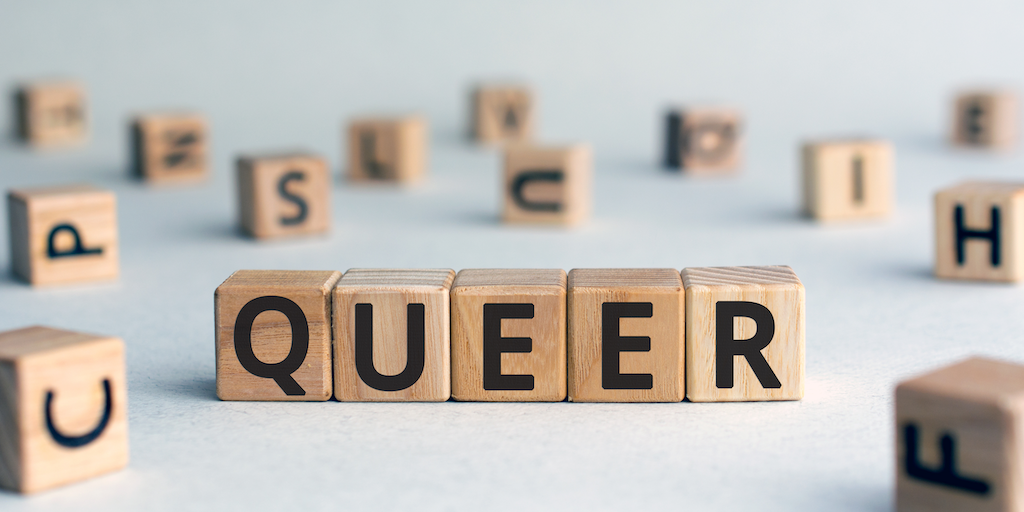The word “queer” is one of the most complicated words in our language. Not only does it have several meanings, but the term has been used to both attack and celebrate the LGBTQ+ community.
In an article by Learning for Justice, Cory Collins writes “The word queer holds, in its history, both pain and empowerment. It has been a dagger and a hug, a dismissal and a welcome sign, a put-down and a motivation to stand up and march.” But, how did this dual-meaning begin?
If you search “queer” into the Oxford Dictionary, one of the first definitions that appears originates from the 16th century states: “Strange, odd, peculiar, eccentric. Also: of questionable character; suspicious, dubious.”
Yes, it’s not the nicest way to describe someone, but how did it become such an offensive term?
“Queer” was not used as a slur in relation to same-sex relationships until 1894, when John Douglas coined it after discovering that his son was in a homosexual relationship with author Oscar Wilde. Doulgas had used the term “snob queers” as a descriptor for gay men, establishing the term as a slur which was quickly picked up by the American press and became ingrained in society.
Since then, like a lot of language in the LGBTQ+ community, “queer” became an insult. If something or someone was “queer” it was usually seen as a negative. The same treatment was received with the word “gay”. Nowadays we do not view the term “gay” as insulting, and we should not view “queer” that way either.
Things began to change from the 1960’s and 1970’s during the gay liberation movement when activists took to the streets chanting “we’re here because we’re queer” in attempts to reclaim the once insulting word.
We do not view the term “gay” as insulting, and we
should not view “queer” that way either.
This continued during the global AIDS crisis when LGBTQ+ activists wanted to use more communal terms rather than just “gay” or “lesbian”. Queer Nation stated in their leaflet titled ‘Queers Read This’:
“When a lot of lesbians and gay men wake up in the morning we feel angry and disgusted, not gay. So we’ve chosen to call ourselves queer. Using ‘queer’ is a way of reminding us how we are perceived by the rest of the world. It’s a way of telling ourselves we don’t have to be witty and charming people who keep our lives discreet and marginalised; we use queer as gay men loving lesbians and lesbians loving being queer. Queer, unlike GAY, doesn’t mean MALE.”
After years of “queer” being used in mainstream media as a derogatory term, its new meaning started to reach mainstream media. In the late 90’s it was used in the Channel 4 programme, ‘Queer as Folk’ which documented the lives of three gay men in Manchester’s gay village. Additionally, in 2003, ‘Queer Eye’ first appeared on American screens and has since been recast for Netflix. This representation ultimately proved that the negative connotations associated with the word queer were on their way out.
Since the early 2000’s, the word has been used as an umbrella term to represent a spectrum of both sexuality and gender identities from the LGBTQ+ community.
On the other hand, some members of the LGBTQ+ community use “queer” as a self-identifying term for those wanting to reject specific labels.
Stonewall uses the definition: “Queer is a term used by those wanting to reject specific labels of romantic orientation, sexual orientation and/or gender identity. It can also be a way of rejecting the perceived norms of the LGBT community (racism, sizeism, ableism etc). Although some LGBT people view the word as a slur, it was reclaimed in the late 80s by the queer community who have embraced it.”
Although the colloquial meaning of “queer” has shifted, as Stonewall mentions, some people do find the term uncomfortable due to its previous meaning and usage throughout history. One writer to the Guardian claimed that the “q-word” was as derogatory and offensive as the “n-word”, and should not be used, whereas others prefer using their own labels. Therefore, although the word’s meaning has changed, it is always important like with any other label to ask whether people feel comfortable with the term.
So with the shifting meaning of “queer”, is it ok to use? Yes. Although the term’s history should not be ignored for the damage it did for the LGBTQ+ community, for many people being “queer” is their whole identity and truly encompasses who they are. It has become an inclusive term for many people within the LGBTQ+ community.

